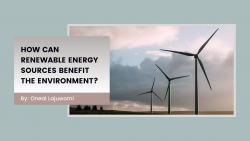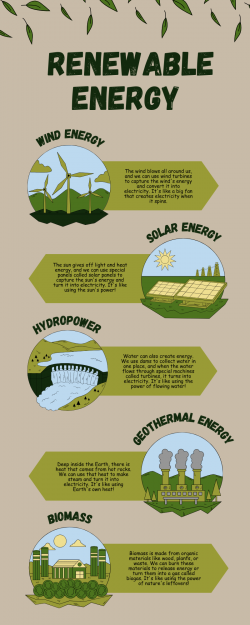Oneal Lajuwomi: How Renewable Energy Enhances Economic Growth and Sustainability
In the modern era, renewable energy has emerged as a transformative force, driving not only environmental preservation but also economic growth and sustainability. Oneal Lajuwomi, a renowned Energy & Engineering Manager, has dedicated his career to advancing renewable energy solutions that contribute to these critical global objectives. Through his leadership and expertise, Lajuwomi has demonstrated how renewable energy is not just a tool for reducing carbon emissions but also a catalyst for economic prosperity and long-term sustainability.
Creating Jobs and Stimulating Economic Activity
One of the most significant ways renewable energy enhances economic growth is through job creation. Unlike fossil fuel industries, which are often highly automated, renewable energy projects require a substantial human workforce for development, installation, and maintenance. Oneal Lajuwomi highlights that sectors such as solar, wind, and hydropower have created millions of jobs worldwide. These opportunities span various skill levels, offering employment in engineering, manufacturing, construction, and maintenance.
Furthermore, renewable energy projects stimulate local economies by encouraging investments in infrastructure and technology. Communities benefit from increased demand for local services, such as transportation and housing, which indirectly support other sectors of the economy.
Reducing Energy Costs and Increasing Competitiveness
Renewable energy also plays a crucial role in reducing energy costs, and enhancing economic competitiveness. Over the years, advancements in technology have significantly lowered the cost of renewable energy production. Solar panels and wind turbines are now more affordable and efficient than ever, allowing businesses and households to reduce their energy expenditures.
Oneal Lajuwomi emphasizes that these cost savings can be reinvested into other areas of the economy, fostering innovation and growth. Additionally, nations that adopt renewable energy on a large scale can reduce their reliance on imported fuels, improving energy security and stabilizing their economies against volatile global energy markets.
Supporting Long-Term Sustainability
Economic growth is most impactful when it aligns with sustainability. Renewable energy offers a pathway to achieve this balance by reducing greenhouse gas emissions and minimizing environmental degradation. Oneal Lajuwomi’s work in energy optimization has shown that integrating renewable energy into industrial processes can enhance efficiency while maintaining environmental integrity.
Moreover, renewable energy projects often promote community involvement, empowering individuals and organizations to participate in sustainable practices. This inclusivity fosters a sense of shared responsibility and collective action toward a sustainable future.
Driving Innovation and Technological Advancement
The renewable energy sector is a hotbed of innovation, driving technological advancements that benefit multiple industries. From advancements in battery storage to the development of smart grids, the ripple effects of renewable energy innovation extend far beyond the energy sector. Oneal Lajuwomi’s leadership has been instrumental in promoting research and development, encouraging partnerships between governments, private companies, and academic institutions to push the boundaries of what renewable energy can achieve.
A Vision for the Future
Under the guidance of visionaries like Oneal Lajuwomi, renewable energy is poised to play an even greater role in shaping a sustainable and prosperous future. By creating jobs, reducing costs, supporting sustainability, and driving innovation, renewable energy not only addresses environmental challenges but also lays the foundation for robust economic growth.
As the world continues to transition toward cleaner energy sources, Oneal’s insights and leadership serve as a beacon of what is possible when commitment and expertise converge. Renewable energy is not just a solution for today’s challenges; it is a promise for a brighter, more sustainable tomorrow.


































